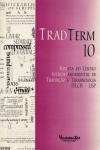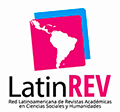When italians talk 'business' they mean it
DOI:
https://doi.org/10.11606/issn.2317-9511.tradterm.2004.47180Keywords:
Bilingual comparable corpus, corpus-based methodology, corpus-driven methodology, anglicism, functionally-complete unit of meaning, colligation, collocation.Abstract
In business Italian the use of anglicisms is characterised by two main features. One is the growing proportion of non-adapted versus adapted loan words, the other is the significant role played by the media in introducing anglicisms into the Italian vocabulary. Translator trainees are often faced with the problem of identifying the correct contexts in which an English lexical item can be translated with an anglicism in Italian, particularly with polysemic words whose respective range of meanings in the source and target language tend to differ, as revealed by the definitions contained in monolingual dictionaries (Laviosa, 2003). An additional difficulty is that the context provided in the target language is either very limited or non existent (see for example Grande dizionario italiano, De Mauro, 2000; or Vocabolario della lingua italiana, Zingarelli, 2003, respectively). The present study adopts a corpus-driven and a corpus-based approach to investigate the use of the lemma ‘business’ in an Italian-English comparable corpus of business language (COMIC-SALCA), as a first step towards a fuller analysis of this term as a functionally-complete unit of meaning (Tognini-Bonelli 1996a/b; 2000, 2001). The aim is descriptive and pedagogic.Downloads
Download data is not yet available.
Downloads
Published
2004-12-18
Issue
Section
Translation and Corpora
License
Autores que publicam nesta revista concordam com os seguintes termos:
- Autores mantém os direitos autorais e concedem à revista o direito de primeira publicação, com o trabalho simultaneamente licenciado sob a Licença Creative Commons Attribution BY-NC-SA que permite o compartilhamento do trabalho com reconhecimento da autoria e publicação inicial nesta revista.
- Autores têm autorização para assumir contratos adicionais separadamente, para distribuição não-exclusiva da versão do trabalho publicada nesta revista (ex.: publicar em repositório institucional ou como capítulo de livro), com reconhecimento de autoria e publicação inicial nesta revista.
- Autores têm permissão e são estimulados a publicar e distribuir seu trabalho online (ex.: em repositórios institucionais ou na sua página pessoal) a qualquer ponto antes ou durante o processo editorial, já que isso pode gerar alterações produtivas, bem como aumentar o impacto e a citação do trabalho publicado (Veja O Efeito do Acesso Livre).
How to Cite
Laviosa, S. (2004). When italians talk ’business’ they mean it. TradTerm, 10, 279-293. https://doi.org/10.11606/issn.2317-9511.tradterm.2004.47180








